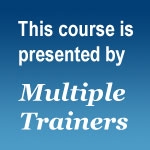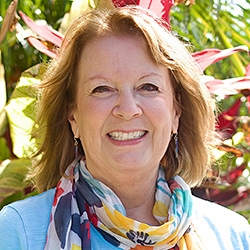

NVC Resources on Exercises and Practices
-
Workplace relationships are complex. Each employee brings their unique self to work. Their background, perspective, emotional triggers, and working style. Add to this the dynamics of power relations, and the fact that often workplace communication now takes place at our computer keyboards rather than face-to-face. Sylvia Haskvitz offers practical tips to make today's complex workplace relationships more satisfying and effective.
-
Being heard is a core human need. But what if you don't like what the other person is saying: how do you hold onto your awareness of their humanity? Find out in this demonstration from Kathy Simon's course, Connect Across Differences.
-
Self responsibility is owning what's yours. It involves identifying your observations, evaluations, feelings, longings, and more. When we identify what's truly ours we are unlikely to mistake it as coming from outside of us. Self responsibility is not self blame. Without self responsibility, we project, blame and judge. Self-responsibility is central to clarity and full self-awareness. This exercise will guide you there.
-
Are you looking to deepen your connection to Nonviolent Communication (NVC) and build powerful empathy skills? In this short video, Mary Mackenzie shares how finding an empathy buddy transformed her life and practice.
-
We can't alone (nor with lone communities) transform the hidden structures of violence and domination. Dialogue alone isn't disruptive enough. We can easily be in dialogue with Trump supporters while the planet burns up, millions are still hungry, and we go extinct. NVC seriously risks reinforcing vast inequities and abuses if we're not radically engaging systemic constraints, and impacts of our choices that go beyond our immediate circle. Read on for ways to leverage NVC practices to expand true social change.
-
Our brains often quickly categorizes things as good, bad, right, or wrong and then determines who’s to blame or praise. Maybe this supports the illusion of order and predictability, thus provides a false sense of safety and reassurance. But its less effective in truly meeting our needs. By practicing "Living in the Observation," we can focus on reality, avoid unhelpful rumination, and find peace and empowerment in everyday life.
-
When working to repair a relationship after conflict, and after reaching mutual care and understanding, you’re more likely to prevent future disconnection in similar situations by coming to clear, specific, and actionable agreements. Ensure requests for agreements come from a negotiable needs-based dialogue. Clarify specifics and plan to revisit agreements to assess their effectiveness.
-
Puzzling about needs and feelings? Check out this excerpt from Dian Killian's course, Embracing the Body: Somatic Self Empathy, where she leads participants through an exercise that demonstrates how our physical sensations connect us to our feelings and needs.
-
Deepen your empathic presence with Raj and Mary, for those with basic understanding of NVC.
-
Want to expand your needs vocabulary, and build your capacity to identify needs — even when you’ve been triggered? Check out Mary’s powerful teaching on Self-Empathy.

Quick Links
Subscription Preferences
Stay In Touch!
Looking for ways to keep up with NVC Academy news, get special offers, free resources, or words of inspiration? Here are five ways to stay engaged:










